It’s been nearly 18 years since 66-year-old Tokoroa school teacher Lois Dear was suffocated to death in her classroom on a Sunday morning.
Her killer, Whetu Te Hiko, yesterday went before the New Zealand Parole Board and explained in more detail why he did it. Senior journalist Kelly Makiha was granted permission to attend the hearing.
Lois Dear’s murderer Whetu Te Hiko says his heart feels rotten, he is scum, he hates himself and he is “happy to die” in prison.
He says he needs to “sit with the hurt” for longer to respect the pain he inflicted on Dear’s family when, at age 23, he suffocated the beloved primary school teacher with a sweatshirt and left her dead in her Tokoroa classroom on July 16, 2006.
Te Hiko, now 41 years old, broke down in tears today before three members of a Parole Board panel as he explained why he hadn’t engaged in any psychological help since being jailed.
Te Hiko was eligible for parole for the first time after he was sentenced to life imprisonment for Dear’s murder with a non-parole period of 18 years.
His parole has been declined and he will spend the next two years completing more psychological work to address why he killed the 66-year-old in a random attack.
Dear’s son, Kevin McNeil, has told the Rotorua Daily Post following the hearing that knowing Te Hiko would be behind bars until at least June 2026 was the best outcome for the family.
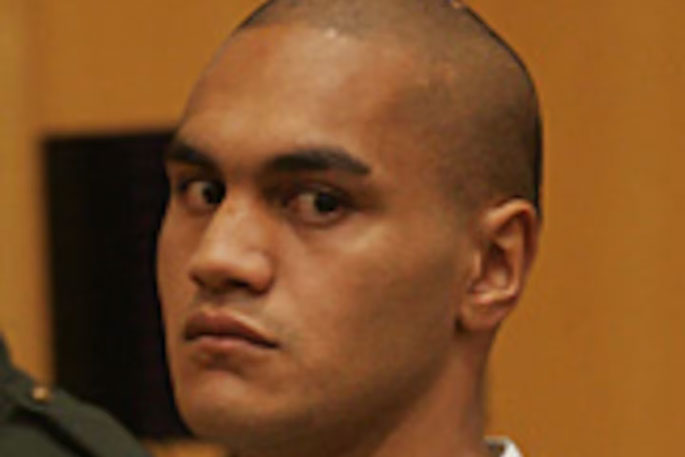 Whetu Te Hiko appears for sentencing in the High Court at Hamilton in 2007. Photo / Alan Gibson.
Whetu Te Hiko appears for sentencing in the High Court at Hamilton in 2007. Photo / Alan Gibson.
The Rotorua Daily Post attended the hearing via audio-visual link.
When asked, Te Hiko told Parole Board panel convenor Neville Trendle in more detail why he killed Dear.
“I wasn’t in a straight mind. I wasn’t waking up in this mindset thinking ‘I should go out and this is my plan’.”
He said there were things in his head he couldn’t get over, including “raw anger” towards some family members.
“Who was I supposed to talk to? I didn’t have anyone to talk to. I thought drugs and alcohol were the answer but it wasn’t.”
He said a relative lived near Strathmore School and he should have gone to her house, instead of trying to steal Dear’s car parked at the school.
“I have roamed those streets [near the school] all my life and never have I walked those streets thinking I would go and do something stupid like that. And I did. And it tears me apart every day.”
Asked by Trendle if there was more than just alcohol in his system making him make bad choices, Te Hiko replied yes.
“There are heaps of demons in there Sir, they were just loud in my head.”
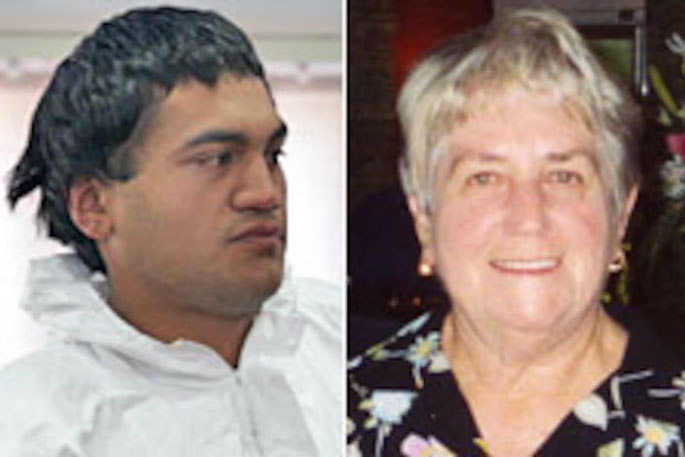 Whetu Te Hiko, left, and Lois Dear.
Whetu Te Hiko, left, and Lois Dear.
Te Hiko killed Dear after spotting her parked car as he stumbled along the street, drunk from the night before.
It was a Sunday morning and Dear had gone in to prepare her lessons for the next week. But she spotted Te Hiko trying to break into her car and yelled out, threatening to call the police.
Te Hiko overpowered her in her classroom, punched and kicked her and eventually suffocated her on the floor. Her dumped car was found shortly after her death and police arrested him after an eight-day manhunt.
It was revealed at Te Hiko’s sentencing that Dear was found in a position that indicated sexual offending.
At today’s hearing, Trendle summarised victims’ submissions to the Parole Board and asked Te Hiko for his views on what they said.
He said they tore him apart.
“To my victim, to her ancestors and to my ancestors, I’m so so sorry. I didn’t want to come here today. I am happy to die here … I hate myself for everything that I’ve put everyone through.”
He said he read every word of their submissions.
“From the first words I read, I was broken, I could feel their pain and I could feel what they were going through. I am used to pain and hurt and when other people are hurting I just want to help them.”
Te Hiko said he wished he could change it.
“I can’t change the outcome but in my heart, I just feel rotten.”
He said he felt “shattered” and hated himself. He had rejected help because he did not feel he deserved to be cared about – and he had felt the same way his “entire lag”.
“I was scum of the earth, meant nothing to nobody … I have never cared about getting out of jail. I don’t want to hurt anybody.”
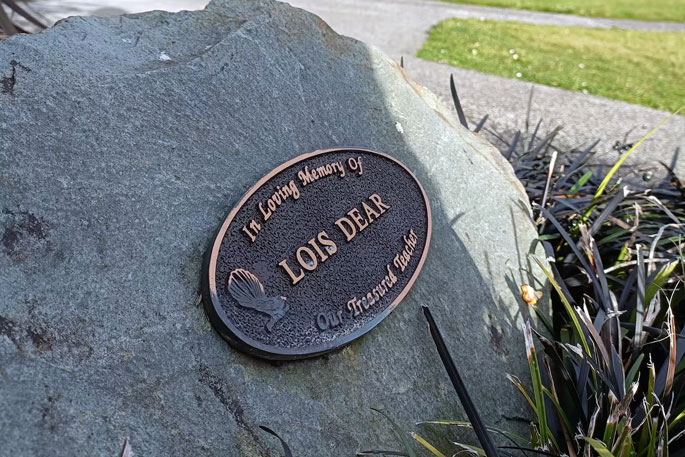 The plaque at Strathmore Primary School in Tokoroa in memory of Lois Dear.
The plaque at Strathmore Primary School in Tokoroa in memory of Lois Dear.
He told the panel he had not read a psychological report prepared about him and despite having it read to him, he had blocked out of his mind the steps it suggested he should take to make improvements.
Trendle said he accepted Te Hiko’s remorse was genuine but suggested what he could do for his victims was to get better mentally.
Prison staff and those who worked with Te Hiko said he was a trusted inmate and worked as a cleaner in the administration block, which was the most trusted position on site.
He was a good carver, weaver and musician and had learned a lot about te reo, haka and waiata and he was a good teacher of te reo with fellow inmates.
He was described as polite and compliant and someone who got on with others and was not considered a danger to anyone.
Forensic psychiatrist panel member Professor Philip Brinded said Te Hiko appeared to be doing well in prison. However, he said he was confused about how much he wanted to help himself.
Te Hiko replied he wasn’t interested in the steps recommended in the psychological report because the submissions from victims meant more to him.
“My sorry and hurt is for the family, I can find things to distract myself and get on with my day but they are still hurting ... To hear their raw hurt means more than some report that talks about me.”
Asked what he saw in his future, Te Hiko said he liked weaving, carving and teaching music to others.
He was asked if he would engage with a psychologist in September to explore if he was ready to move to the next stage of rehabilitation.
Te Hiko said he did not want to rush the process.
Brinded asked if he would accept the help being offered to him.
Te Hiko replied: “I just want to sit with the pain in a healthy way. I think the hurt and pain deserves respect. It deserves everything that I am so sorry for.”
In delivering the decision, Trendle said he accepted Te Hiko was genuine.
He said the psychological report mapped out the work needed and Te Hiko had committed to do it when the time was right.
He said Te Hiko would appear again in two years.
“There is a lot of stuff to cover. That will give you the time and space to make a solid start on that journey,” Trendle said.
Lois Dear’s son reacts
For Coromandel truck driver Kevin McNeil, knowing his mother’s killer will remain behind bars for the next two years is the best outcome their family could hope for.
McNeil, who said he didn’t want to go to the hearing, said he had heard the result from the Parole Board and a relative who attended.
“There is a lot of work he needs to be doing bettering himself by the sounds of it.”
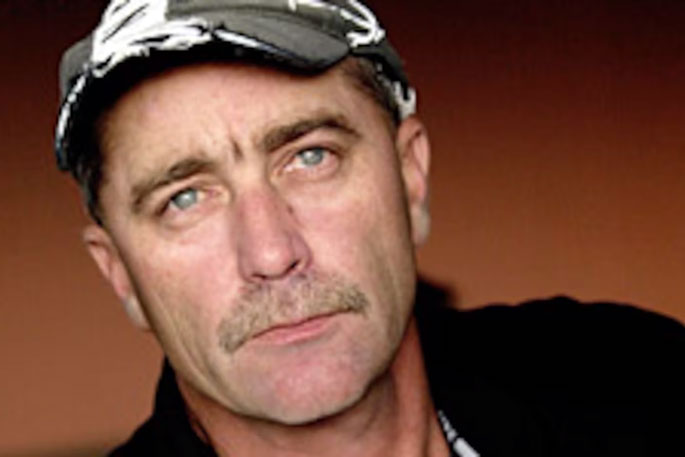 Kevin McNeil.
Kevin McNeil.
McNeil said he was glad it would be another two years before they had to go through this process again.
“I certainly won’t feel different in two years. I never want to see him out.”
He said he was grateful the Parole Board had taken their views into consideration.
“My main concern is for the general public if he was let out again. You never know who is walking the street beside you. Where have they been and what have they done?”
McNeil said no matter what “demons” Te Hiko had in his head, there would never be any excuse for what he did to his mother.
There were plenty of people with tragic upbringings but they did not do what Te Hiko did and until he was in a better place mentally, in McNeil’s view, Te Hiko should never be released.
SunLive has closed this story off to comments.

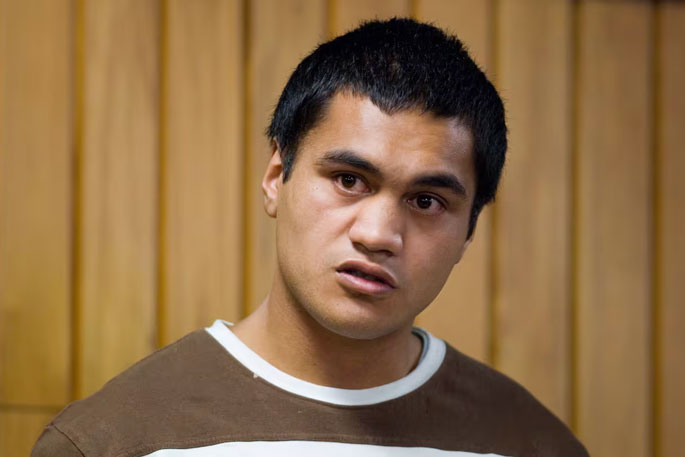

0 comments
Leave a Comment
You must be logged in to make a comment.